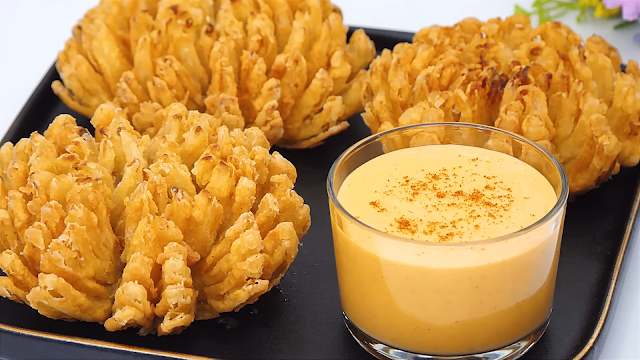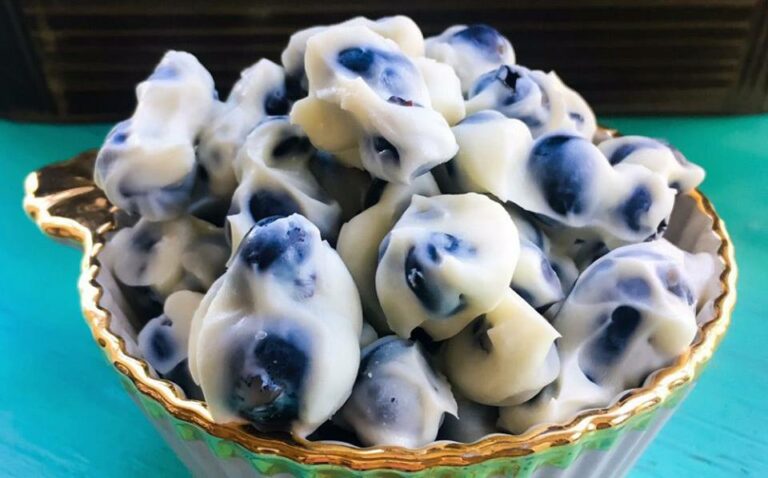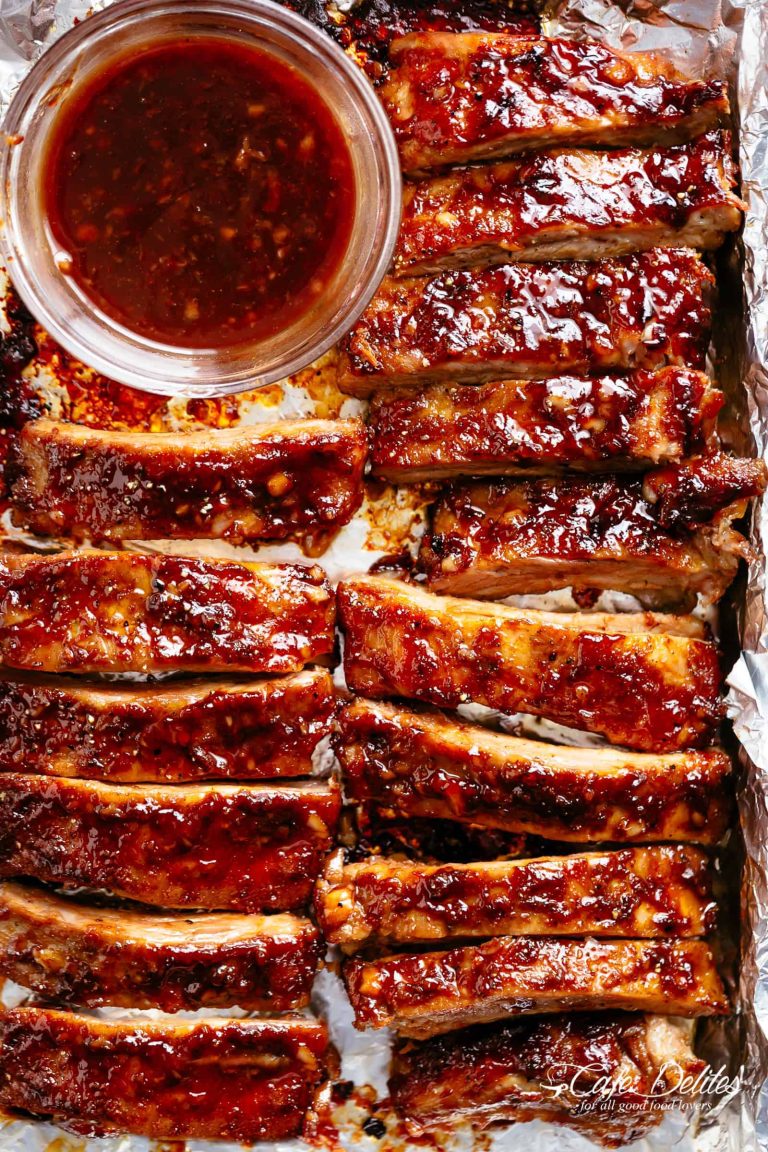BEST EVER BLOOMING ONION

The benefits of onions:
Onions are rich in nutrients
Onions are rich in vitamins and minerals, but they are low in calories. One medium onion contains only 44 calories but provides a hefty dose of vitamins, minerals and fiber.
These vegetables are especially rich in vitamin C, a nutrient that contributes to immune health regulation, collagen production, tissue repair and iron absorption.
Vitamin C also acts as a powerful antioxidant in your body, protecting your cells from damage caused by unstable molecules called free radicals.
Onions are also rich in B vitamins, including folic acid (B9) and pyridoxine (B6), which play a key role in metabolism, red blood cell production, and nerve function.
Finally, onions are a good source of potassium, which is important for normal cellular functions, fluid balance, nerve transmission, kidney function, and muscle contraction.
Onions are good for heart health
Onions contain antioxidants and compounds that fight inflammation and lower triglyceride and cholesterol levels, all of which may reduce the risk of heart disease.
Onions’ powerful anti-inflammatory properties may also help reduce high blood pressure and protect against blood clots.
A 2015 German study of 70 overweight people with high blood pressure found that a daily dose of 162 mg of quercetin-rich onion extract significantly reduced systolic blood pressure by 3-6 mmHg compared to a placebo.
It has also been proven that onions reduce cholesterol levels. In a study conducted by the Iranian University of Tabriz in 2014, conducted on 54 women with polycystic ovary syndrome (PCOS), eating large amounts of raw red onions for eight weeks significantly reduced cholesterol levels.
Benefits of red onions
One of the main benefits of onions is to strengthen the immune system
Scientists have linked onions to many health benefits that mostly come from their antioxidants. Research conducted by a group of Chinese universities in 2016 shows that an antioxidant, called quercetin, protects health in several ways, including fighting infections and strengthening the immune system.
Onions fight germs too!
According to Research Gate, research conducted mainly in labs has shown that onions may kill a wide variety of bacteria.
In one experiment, for example, extracts of onion and garlic inhibited the growth of many microbes.
Moreover, onion extract has been shown to inhibit the growth of Vibrio cholerae, a bacteria that is a major public health concern in the developing world.
Another 2018 test-tube study in China found that quercetin damaged the cell walls and membranes of E. coli and Staphylococcus aureus bacteria.
Onions reduce the risk of cancer
Eating onions may reduce the risk of cancer. Eating vegetables from the genus Allium, such as garlic and onions, is associated with a lower risk of some types of cancer, including stomach, colon, and rectal, as Webmd Medicine and Health notes.
A review of 26 studies showed that people who ate the most allium vegetables were 22% less likely to develop stomach cancer than those who ate the least.
Moreover, a review of 16 studies in 13,333 people showed that participants who ate the highest amount of onions had a 15% lower risk of developing colorectal cancer compared to those who ate the least.
These cancer-fighting properties have been linked to the sulfur compounds and flavonoid antioxidants found in allium vegetables, including red and white onions.
Onions keep the digestive system healthy
Onions contain fructooligosaccharides, which are prebiotics that pass through the small intestine undigested into the large intestine to feed beneficial bacteria.
A lack of healthy gut bacteria can lead to a host of diseases such as diabetes, colon cancer, and depression.
For stronger bones, eat onions
Although dairy products are often credited with promoting bone health, many other foods, including onions, may help support strong bones and prevent osteoporosis, and both animal and human studies support this notion.
A study conducted in China in 2016 on 24 middle-aged and postmenopausal women showed that those who drank (100 ml) of onion juice daily for eight weeks had improved bone mineral density and antioxidant activity compared to the other group.
Another 2009 University of North Carolina study of 507 pre- and post-menopausal women found that those who ate onions at least once a day had 5% more bone density than those who ate them once a month or less.
INGREDIENTS:
2+1/2 Cups Of all-purpose flour.
The largest white onion you have.
2 Large sp Of paprika.
1 Small sp Of cayenne pepper.
1 Small sp Of garlic powder.
1/2 Small sp Of oregano.
Sea salt and black pepper, to taste
2 large eggs.
1+1/2 Cups Of milk.
3 to 4 Cups Of vegetable oil.
For serving: your favorite dipping sauce!!
INSTRUCTIONS :
Step 1:
I combined the flour with spices, sea salt, and black pepper in a medium mixing bowl. And I reserved the mixture for later.
Step 2:
In a medium mixing bowl, I whisked together the eggs and milk.
Step 3:
And, I cut approximately 12 inches from the onion’s pointy end when leaving the root end unchanged, and I removed the papery skin after that.
Step 4:
I put the onion cut-side down on a cutting board. Then using a sharp knife, I cut vertically downward all the way to the board, beginning 34 inches from the root.
Step 5:
I made vertical cuts on the edge approximately 1/2-inch apart, In this step be careful not to overlap previous cuts. In total, I got 10 to 15 cuts.
Step 6:
I turned the onion over and I used my fingertips to slowly open up the onion’s “petals” so it resembles a flower.
Step 7:
After that, I gently dipped the onion into the flour mixture that has been put aside. And I shake off the excess flour.
Step 8:
After shaking off the flour, I dipped it into the reserved egg mixture and coated it properly. For best results, I soaked the onion in the butter for 10 minutes until returning it to the flour mixture and covering entirely.
Step 9:
I put the onion on a plate and placed it in the freezer for 30 to 60 minutes to set.
Step 10:
I heated 3 inches of oil in a deep fryer or medium saucepan to 350 degrees F, then I lined a plate with paper towels and set it aside.
Step 11:
I cooked onion until golden brown, around 3 to 4 minutes. So, using a slotted spoon, I flipped it and simmer for another several minutes, until golden brown.
Step 12:
I transferred the onion to a plate that has been prepared and enjoyed it with my favorite dipping sauce.
SAUCE :
Cheese sauce:
20 grams unsalted butter
1 teaspoon flour
1/4 teaspoon chili powder
125 ml milk
75 grams of cheddar cheese
1 teaspoon chili sauce (optional)





